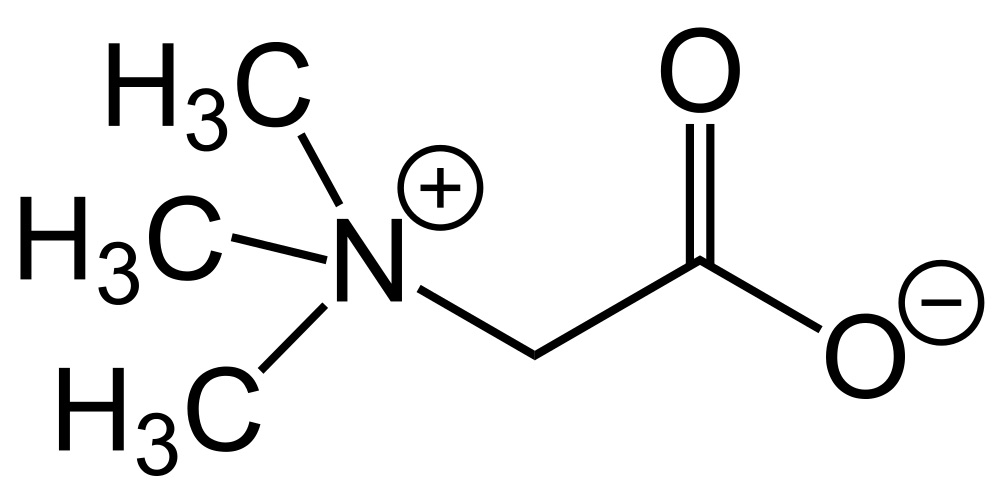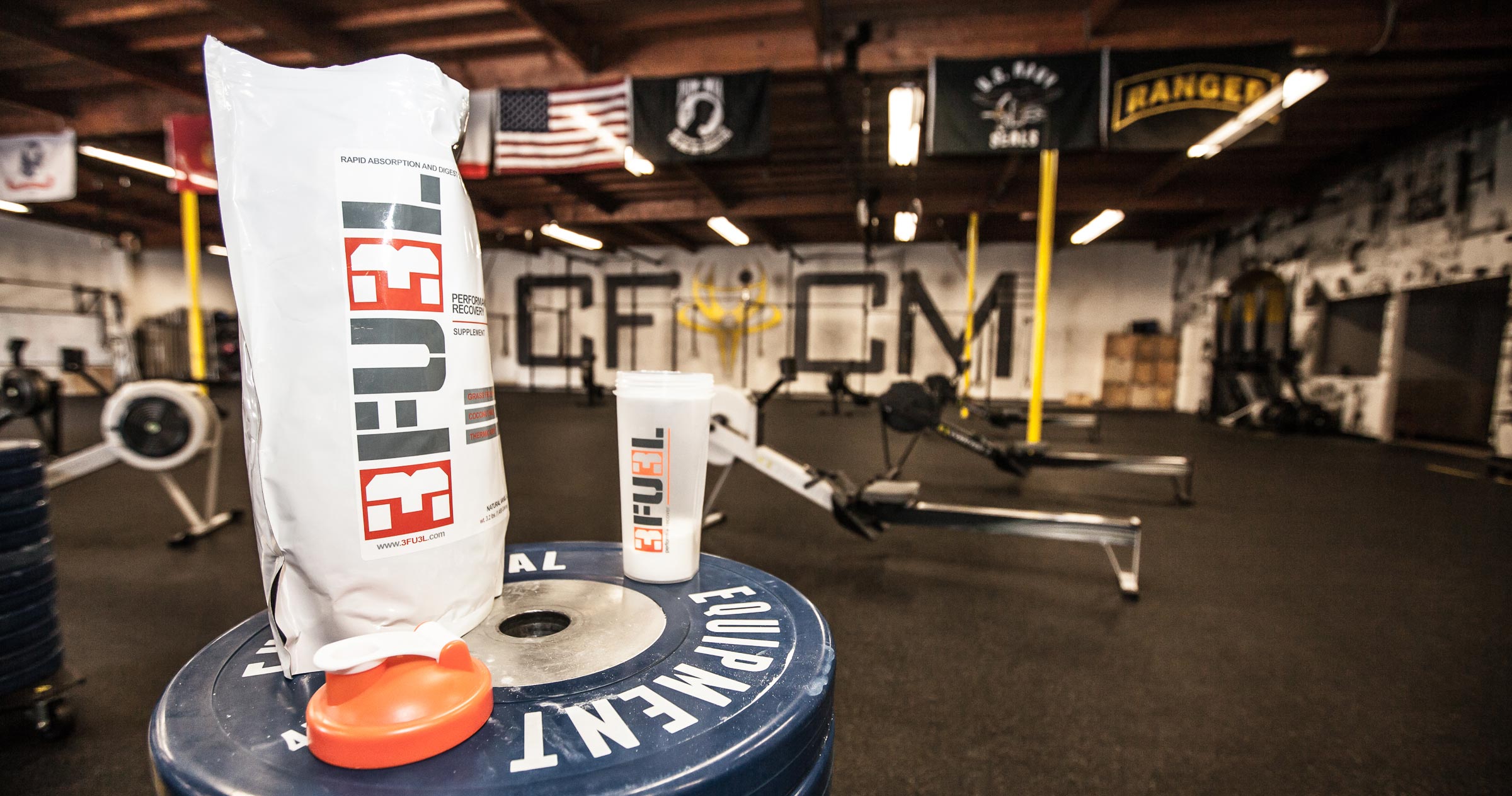Betaine: The Performance-Boosting Micronutrient You Need to Know
A new performance-boosting micronutrient is finally getting the notice it deserves.
We’re talking about betaine, a naturally occurring micronutrient that’s becoming increasingly popular among weightlifters and functional athletes of all stripes. The compound is now showing up in protein powders, energy supplements, and other products targeted at both strength and endurance athletes.
It’s also an ingredient in 3FU3L, and because we’re committed to educating our athletes instead of selling them mystery powder, we wanted to give you the scoop on betaine.
Betaine has been studied for some time for its cardiovascular benefits. But it’s not until more recently that researchers have started to pay attention to betaine’s impact on performance. Let’s take a look at what betaine is, how it can benefit your exercise performance, and the optimal conditions under which betaine can take your training to the next level.
What Is Betaine?
By definition, betaine is a “trimethyl derivative of the amino acid glycine.”

The textbook definition of betaine is denser than rye bread. So let’s try the “explain it like I’m five” version:
Betaine is also known as “trimethylglycine” or “TMG”. Whatever you call it, it’s a naturally occurring compound that’s derived from an amino acid that goes by the name of glycine. The compound can be found in a variety of foods, such as beets, shellfish, spinach, and wheat. Because it’s present in common foods, most of us consume some amount of betaine on a regular basis. Our bodies can also create betaine by oxidizing certain compounds (namely, those that contain choline).
Betaine is also considered a miconutrient, or a substance that the body requires in small amounts in order to maintain healthy functioning. (Micronutrients are contrasted to macronutrients—carbohydrates, fat, and protein—which the body requires in relatively large quantities in order to survive.)
This micronutrient provides a number of different functions in the body:
- It’s considered an osmolyte, which means it helps protect the body’s cells, proteins, and enzymes from damage caused by various stresses, including dehydration. This allows cells to perform better under stress (e.g. exercise).
- It functions as a methyl donor, which means it can help protect the cardiovascular system, keep liver metabolism humming along, and synthesize creatine in skeletal muscle.
- Supplementation with betaine may reduce plasma homocysteine concentrations, thereby minimizing inflammation, protecting internal organs, and combatting the risk of chronic disease (especially cardiovascular disease).
In addition to providing these benefits, betaine has been shown to improve athletic performance. Now that we know what betaine is, let’s take a look at how supplementing with betaine can take your training up a notch.
Benefits of Betaine for Athletes
While researchers have only started to explore the connection between betaine and exercise performance relatively recently, the results so far are promising. Here’s an overview of the many potential benefits of betaine as it relates to performance.
Improves muscle endurance.
In one study, active college-aged males were instructed to supplement with betaine for two weeks. At the end of the two weeks, the researchers observed improved muscle endurance and overall improved workout quality during lower body exercises.
Participants were not only able to increase the number of repetitions performed overall; they were also able to increase the number of repetitions performed at 90 percent of their maximal mean and peak power outputs. The researchers attributed these endurance gains to betaine’s ability to synthesize creatine in skeletal muscle.
It may improve power performance.
One study that looked at the effects of betaine supplementation on active men found that participants demonstrated notable improvements in bench press throw power, isometric bench press force, vertical jump power, and isometric squat force.
The supplement has also been shown to increase bench press work capacity and enable athletes to maintain 100% of their power output over two consecutive days of squat workouts at 85% of their 1RM.
It may improve strength and body composition.
Yet another study examining the effect of betaine supplementation in active men found that, after six weeks of using the supplement, participants demonstrated improved body composition. This took the form of increased muscle mass, decreases in fat mass and body fat percentage, and increased arm size. These findings are consistent with animal studies that have found that betaine supplementation can reduce fat mass and increase muscle mass.
In addition to these performance-enhancing effects, it’s possible that betaine may also increase overall training volume tolerance, reduce the stress hormone cortisol, and moderately increase oxygen uptake during high-intensity exercise.
All of these qualities speak to why we chose to include betaine as one of the ingredients in 3FU3L. The compound demonstrates effective strength, power, and endurance gains without necessarily adding bodyweight. A higher strength-to-bodyweight ratio, more lean tissue, less fat mass, and improved endurance: That’s why you’ll find betaine throughout our range of athlete tested products.
The Bottom Line on Betaine
Betaine is a naturally occurring micronutrient that can boost legitimate exercise gains—provided you know how to use it.
Even though betaine can be found in a variety of food sources, it’s unlikely you’d be able to eat enough of these foods to provide adequate betaine intake for exercise gains. So a supplement that contains it — like 3FU3L — is generally needed to see noticeable benefits.
Additionally, studies suggest the supplement is most effective when it’s taken over the long-term. In other words, you can’t take betaine one time and expect to see an improvement in performance.

Finally, there’s evidence that betaine is most effective for people who already have a consistent training regimen. Sedentary or untrained subjects seem to benefit less from the supplement, especially when it comes to its effects on body composition.
If you are sedentary, it may be worth taking the time to develop an exercise program before supplementing with betaine. But if you’re already training regularly and are looking to take your performance to the next level, then betaine supplementation may be right for you. And that’s why it’s a hallmark ingredient in our performance + recovery supplement.


